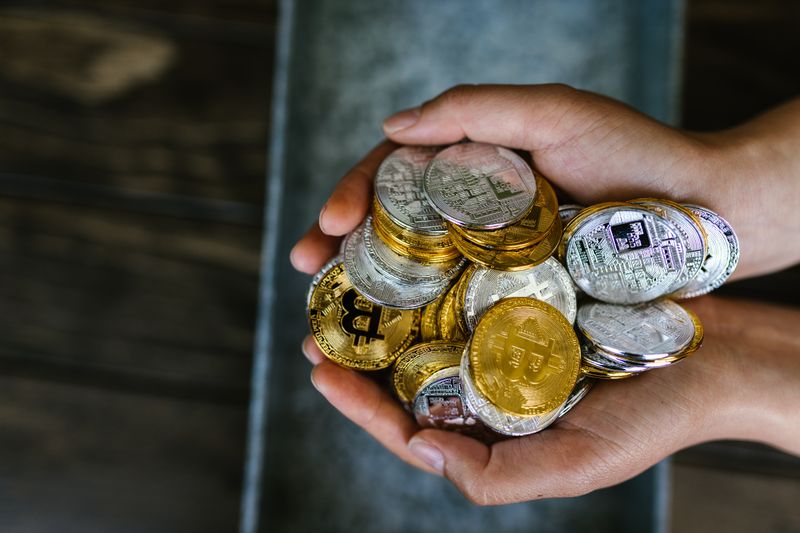Ripple Does Not Care Whether XRP Is ‘Sufficiently Decentralized’
Introduction
The unsealing of the long-awaited “Hinman docs” has raised speculation about the impact they will have on the legal battle between Ripple and the U.S. Securities and Exchange Commission (SEC). Ripple is being sued by the SEC for allegedly conducting an illicit sale of $1.3 billion worth of XRP, which the SEC considers a security. While Ripple has fought to make these documents public, their purpose may not align with common interpretations.
The Hinman Speech and Ripple‘s Defense
The controversy stems from a speech given by William Hinman, the former Director of the SEC’s Corporate Finance Division, in 2018. In the speech, Hinman argued that Ethereum’s native token, ether (ETH), should not be classified as a security because the network had become “sufficiently decentralized.” Ripple, however, does not view Hinman’s thinking as helpful to its defense. Instead of arguing that XRP has decentralized over time, Ripple is asserting that Hinman’s theory was not based on a proper understanding of securities law. Ripple‘s intention in releasing the documents to the public is to sow discord and show that the SEC sued without a clear legal basis.
Editorial: Ripple‘s Strategy
Ripple‘s legal strategy seems to be focused on undermining the SEC’s case against the company. By questioning the credibility of Hinman’s speech and showing a conflict of interest, Ripple aims to weaken the SEC’s argument. Additionally, Ripple argues that the SEC violated its due process rights by failing to provide “fair notice” of potential securities regulation violations. It is clear that Ripple is determined to fight the allegations and defend its position.
The SEC’s Position and Ripple‘s Argument
The SEC has attempted to keep the Hinman documents out of public view, claiming that Hinman’s statements were his alone and did not represent the agency’s understanding. While some SEC officials agreed with Hinman’s views, it is evident that there were differing opinions within the agency. Ripple highlights the lack of consensus and alleges a conflict of interest on Hinman’s part, as he had a stake in a law firm that was a member of the Enterprise Ethereum Alliance at the time of his speech. Ripple argues that XRP is not a security and compares it to commodities like diamonds, gold, soybeans, and cars.
Editorial: Ripple‘s Impact on the Blockchain Industry
The outcome of Ripple‘s case holds significance for the future of the blockchain industry. When Coinbase and other U.S. exchanges delisted XRP in 2020, it signaled a shift in how regulators viewed cryptocurrencies. The case raises questions about whether cryptocurrencies meet the criteria of the SEC’s Howey Test, which determines whether an “investment contract” is a security. Ripple denies that XRP qualifies as a security, and the case will provide clarity on the legal classification of cryptocurrencies. The ruling will have implications for other cryptocurrencies and their regulatory environment.
The Debate Over Decentralization
While the legal battle between Ripple and the SEC has captured attention, an overlooked aspect is the debate over decentralization. Ripple‘s argument that XRP has decentralized over time is contentious. Critics argue that Ripple, as the primary developer on the XRP ledger, has significant control over the network, making it less decentralized compared to Bitcoin and Ethereum. The SEC has seized on this point in its lawsuit. The lack of decentralization has been a point of contention within the blockchain industry, with many viewing Ripple as an obstacle to true decentralization.
Philosophical Discussion: Decentralization in the Blockchain Era
The debate over decentralization raises philosophical questions about the nature and ideals of the blockchain industry. Blockchain technology was originally conceived as a decentralized and trustless system. Bitcoin and Ethereum have become the epitome of this vision, promoting trustless transactions and enabling individuals to take control of their financial activities. However, cryptocurrencies like XRP blur the line between centralization and decentralization. This raises questions about the fundamental nature of the industry: Should decentralization be an essential characteristic of all cryptocurrencies, or is there room for centralized entities to facilitate innovation? This philosophical discussion is essential for shaping the future of the blockchain industry.
Conclusion
The unsealing of the Hinman documents has brought new insights into the legal battle between Ripple and the SEC. Ripple‘s focus on discrediting Hinman’s speech and alleging a conflict of interest reflects its determination to fight the allegations. The outcome of this case will have far-reaching implications for the blockchain industry and the classification of cryptocurrencies. Additionally, the debate over decentralization raises important philosophical questions about the industry’s ideals and values. As the legal battle unfolds, the industry must navigate these complex issues to shape a sustainable and innovative future.

<< photo by Ben Mack >>




